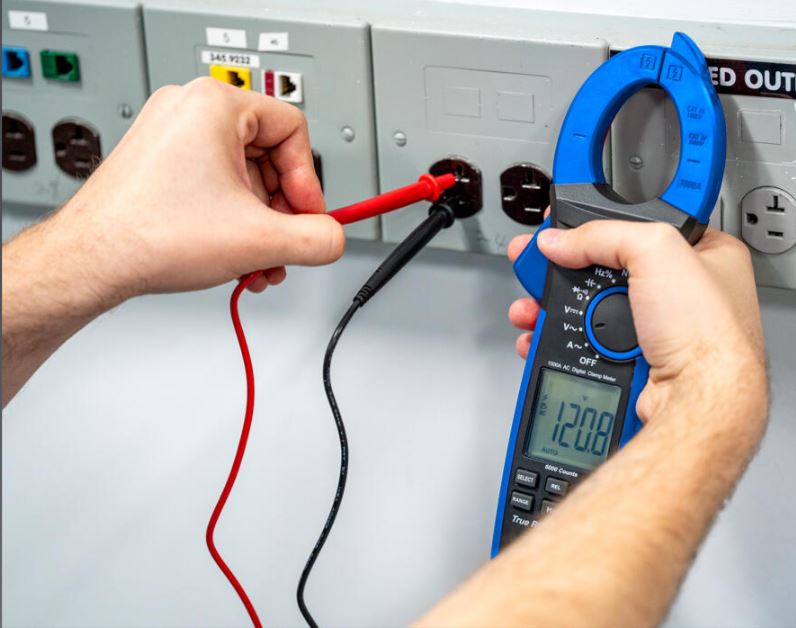NEWS
Mastering Electrical Projects: How to Rent the Right Professional-Grade Clamp Meters and Testers

Whether you’re a seasoned electrician or a do-it-yourself enthusiast tackling electrical projects at home, accuracy and safety should always be at the forefront of your operations. One way to ensure both is by having the right tools for the job. The modern electrical landscape calls for sophisticated electrical testing equipment for rent, which often includes items like professional-grade clamp meters and insulation testers. In this guide, we’ll scrutinize the process of how to rent professional-grade clamp meters, insulation testers, and other essential gear to execute your electrical projects with precision and security.
Understanding the Importance of Professional-Grade Equipment
Firstly, it’s imperative to appreciate why professional-grade equipment is so pivotal. These tools come calibrated and maintained to the highest standards, offering both reliability and precision. Such equipment is designed to cater to a vast range of electrical measurements and diagnostics that are crucial for any electrical task. By opting to rent, you don’t just acquire top-tier technology; you also benefit from cost savings and do not have to contend with long-term maintenance or updates.
Deciphering the Specs: Choosing the Right Clamp Meter
When you’re in the market to rent professional-grade clamp meters, the first step is pinpointing the right specs for your specific needs. Clamp meters are indispensable for measuring the current flowing through a circuit without the need to disconnect it. Consider the following when choosing a clamp meter:
- Current Range: Ensure that the meter can handle the current range you’ll be working with.
- True RMS: For accuracy in readings, especially when dealing with non-linear loads, true RMS (Root Mean Square) capability is a necessity.
- Size and Jaw Opening: The physical size of the meter and the jaw opening must be sufficient for your application, especially if you’ll be working in confined spaces or with large conductors.
- Additional Functions: Today’s clamp meters often feature additional functionalities such as voltage measurement, continuity tests, and even infrared thermometers. Decide which features are essential for your work.
Finding a High-Quality Insulation Tester
An insulation tester is another critical piece of equipment that’s used to measure the resistance of an electrical insulator, preventing potential short circuits or circuit breakdowns. When electricians overlook this tool, they’re gambling with the integrity of the electrical installation, and potential safety risks occur. Here are features to look for in a quality insulation tester:
- Voltage Rating: Select an insulation tester with the appropriate voltage rating for the systems you will be testing.
- Test Options: Consider whether you need a tester that provides a variety of test voltages for more flexibility in your testing procedures.
- Durability: For longevity and performance in varying environmental conditions, ensure the insulation tester is durable and robustly constructed.
- User Interface: A clear and user-friendly interface is helpful for accurate readings and efficient operation.
Why Rent Instead of Buy?
Renting electrical testing gear is an intelligent choice for many. The benefits lay not only in cost savings but also in the ability to access the latest equipment without a full purchase commitment. Further, rental options generally include comprehensive support from the provider, which is invaluable for the less experienced or for unique one-off projects where specialised equipment is required.
The Rental Process: Steps to Acquire Electrical Testing Equipment
Once you’re ready to rent, the process typically includes the following steps:
- Identify the equipment needs for your specific electrical task or project.
- Research reputable rental companies that offer electrical testing equipment for rent.
- Examine and compare their rental terms, prices, and additional services such as delivery, calibration, and maintenance.
- Ascertain the availability of the equipment for the required rental period.
- Place your order, ensuring all your project requirements are communicated.
- Receive the equipment, perform the necessary electrical tests, and return the gear according to the rental agreement.
Enhancing Safety with the Right Tools
Safety is non-negotiable in electrical work. Properly functional and reliable testing equipment is paramount for not only protecting the user but also ensuring the safety of the entire electrical installation. A clamp meter or insulation tester with an unknown calibration or faulty operation can lead to dangerous conclusions and actions.
Conclusion
Mastering electrical projects isn’t solely about your skills and knowledge; it also encompasses the quality of the tools at your disposal. Renting affords you the flexibility, financial sense, and assurance that you’re working with up-to-date and fully calibrated equipment. Whether you’re in need of a robust rent professional-grade clamp meters, a dependable insulation tester, or any other electrical tester; look to reputable rental companies to bolster your electrical tasks. With accurate and reliable readings, you not only work smarter but also uphold an environment where safety is esteemed above all else.
By thoroughly embracing the rental route according to this guide, you’ll be well-equipped to handle myriad electrical challenges with confidence and secure peace of mind for yourself and all stakeholders involved in your electrical undertakings.
Harper Harrison is a reporter for The Hear UP. Harper got an internship at the NPR and worked as a reporter and producer. harper has also worked as a reporter for the Medium. Harper covers health and science for The Hear UP.










